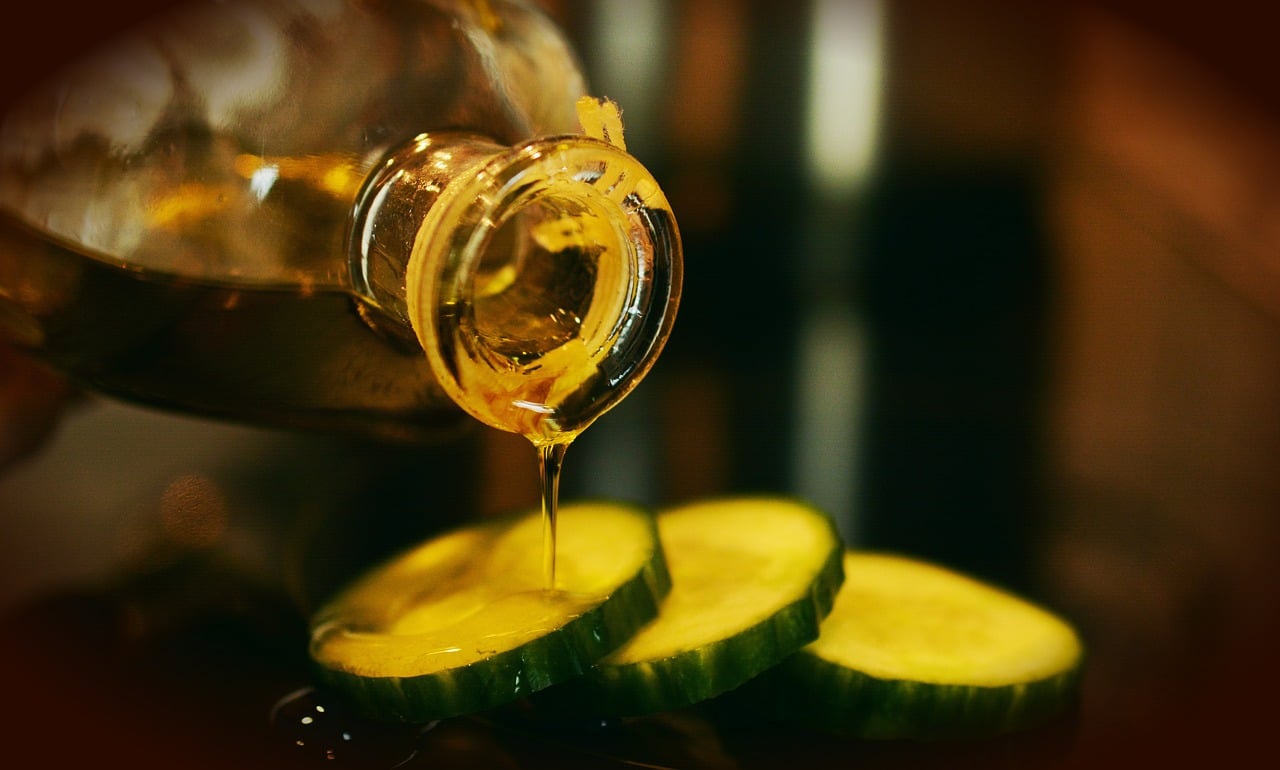What is the best cooking oil for the heart? Selecting the right cooking oil for cooking delicious dishes like steaks or taking care of a person with diabetes is imperative if you want to make your family healthier. With the right cooking oil, weight loss also becomes easier or more achievable. Think of the same principle if you are a fan of griddle cooking and would like to improve the food’s overall nutrition.
What Is the Difference Between Vegetable Oil and Peanut Oil?
There may be confusion about vegetable oil and peanut oil, because to the uninitiated, peanut oil seems to be a type of vegetable oil, perhaps like sunflower oil or olive oil. However, in reality, peanut oil is a category of its own, the same way that vegetable oil cannot be confused with other kinds of cooking oil. Peanut oil or Arachis oil is extracted from peanuts.
Peanut oil is known for its fragrant smell, and it is a crowd favorite because of how diverse it is in the kitchen. Roasted oil adds a ton of flavor to any dish, too. Peanut oil is widely used in Southeast Asia, East Asia, and the United States. It is also a mainstay in Mediterranean and African cuisines.
Peanut oil can be compared to sesame oil because of the natural flavors it possesses. The high smoking point of peanut oil is frequently used for batch cooking of large quantities of food such as fried chicken and French fries.
Is Peanut Oil Healthy?
Peanut oil has three main health benefits:
- It is loaded with vitamin E. Just one tablespoon of peanut oil will already provide you with eleven percent of the daily allowance for vitamin E. Vitamin E protects the immune system and the cardiovascular system, too. It’s an excellent way to get vitamin E, which also helps boost skin health.
- Peanut oil is packed with nutrients that help prevent the breakdown of the heart. If you are interested in heart-healthy cooking oil, peanut oil certainly fits the bill.
- Thirdly, peanut oil may help people overcome insulin sensitivity. This means that people who have type 2 diabetes are likely to benefit from adding more peanut oil to their cooking.
As with any cooking oil, moderation is key. Many types of cooking oil, including peanut oil, contain omega-6 fatty acids and omega-9 fatty acids. In the right quantities, these naturally-occurring fatty acids are beneficial to the body. However, suppose you get too much from your meals. In that case, your blood vessels may constrict, and there might be more inflammation in your cells and tissues because omega-6 fatty acids are known for enhancing the body’s inflammatory markers if there is too much of it. Keep in mind that omega-3, omega-6, and omega-9 fatty acids are different, and they have distinct effects on the body.
On the other hand, vegetable oil is a combination of different plant-based oils derived from multiple sources. Vegetable oil is a blend or mixture of different oils, including palm oil, coconut oil, rapeseed oil, etc.
Depending on the vegetable oil’s blend and brand, the vegetable oil can be used primarily to assist cooking or add flavors to a dish. However, its most common usage is simply for cooking precisely because it comprises different types of cooking oil.
Vegetable oil is manufactured differently from other types of oils. The mixture of oil sources is combined and then crushed together to obtain the plant-derived oils. Hexane is eventually distilled after crushing the seeds. The cooking oil is refined several times to remove the impurities, while the waste products of oil production are fed to animals.
As you can see, vegetable oil can’t be the same as peanut oil (and vice versa) because vegetable oil involves more than one source of edible oil for human consumption. The vegetable oil smoke point of at least 400°F or 204.4°C. Some brands of vegetable oil can reach up to 450°F, or 232.22°C.
High smoking point cooking oils are ideal for high-temperature cooking and batch cooking of food items because the oil won’t burn quickly, and you can go up to the required temperature to ensure that everything is cooked for perfection.
Is Vegetable Oil Healthy?
Vegetable oil can be healthier if it has more stable organic oils added to the mixture. As we have discussed previously, vegetable oils are blended using different kinds of oils. Three organic oils stand out in providing oxidative stability to vegetable oil: soybean oil, sunflower oil, and rapeseed oil. The higher the number of stable oils with oleic acid and the like, the more stable the vegetable oil, and the need for hydrogenation is reduced to virtually zero.
Can Peanut Oil Be Used Instead of Vegetable Oil?
Peanut oil can certainly be used as an alternative to vegetable oil. Peanut oil is also naturally aromatic so that it will provide that great boost of flavor and aroma to food. If you have not tried using peanut oil before, you are in for a treat, as peanut oil naturally imparts great flavor to dishes. Peanut oil can be used in virtually all kinds of cooking, including batch cooking of proteins and high-starch food such as French fries. Peanut oil also has a high smoking point so that it will withstand high-temperature cooking methods.
Which Cooking Oil Is Good for the Health?
Coconut oil, peanut oil, olive oil, soya bean oil, and rapeseed oil are all viable cooking oils that provide heart-healthy benefits. Try experimenting with different kinds of cooking oils for the best results.
Is Vegetable Oil Good for Frying?
Vegetable oil is globally used for frying. Whether you are engaged in regular pan-frying with nominal amounts of oil for deep-frying, vegetable oil will generally deliver good results because of its stability and high smoking point.

